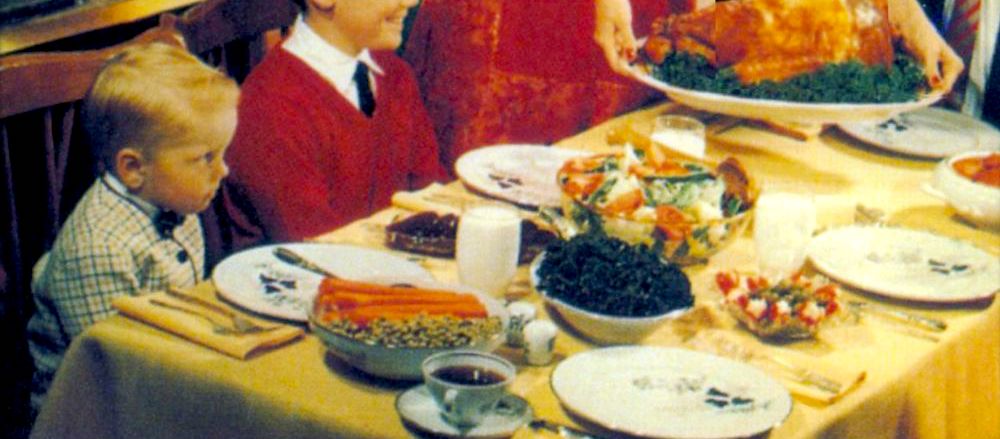
Jessie Gaynor on Rereading The Corrections While Navigating Her Mother’s Parkinson’s
“The book is the same every time, but I am different, so what it offers me is different.”
Sometimes, my mother worries about ninjas. The ninjas can fly, or tunnel underground. If Jeffrey Epstein has been in the news, they might be pedophiles. They’re trying to take her grandchildren. They might be from Russia. They are almost definitely planning something. They live across the street. My sister and brother-in-law might be colluding with them, and though my husband and I are not, we are capable of being deceived.
It’s not always ninjas; sometimes it’s the CIA. Sometimes it’s in the pills. Sometimes it’s my baby, who she thinks might not be mine at all. There’s something not quite right about the baby, somehow, though she can’t tell us what.
I read Jonathan Franzen’s The Corrections more than a decade before my mother was diagnosed with Parkinson’s. In my early twenties, Enid and Alfred, the aging Lambert parents, were less compelling to me than their three children. Long (long)-suffering Enid is dealing with the myriad disappointments of her life, most acutely that Alfred’s physical and mental facilities are rapidly deteriorating due to Parkinson’s. I regret to admit that I didn’t find them terribly relatable. Still, after my mother’s diagnosis, I remembered Alfred and his affliction.
One of the novel’s most memorable scenes is told from Alfred’s point of view. He wakes in the middle of the night while on a cruise and hallucinates a (very hostile) talking turd. When I read it the first time, the scene struck me as a little over the top—an almost slapstick moment.
“His peripheral vision was alive with writhing stool now,” Franzen writes.
He had to hold things together, hold things together. Suspecting that a leak in the toilet might be a source of his trouble, he made his way on hands and knees into the bathroom and kicked the door shut behind him. […] He laughed for a moment at the absurdity of his situation. Here he was, an American executive in diapers on the floor of a floating bathroom under siege by a squadron of feces. A person got the strangest notions late at night.
*
I think of this scene when my sister calls to tell me that our mother has woken at dawn and walked into the middle of the street, convinced that the neighbors are ninjas, possibly Russian spy ninjas, who are tunneling underground to steal my niece. It’s still dark when I get the FaceTime, but I’m already awake, feeding my newborn. My sister is crying, but my mother looks angry in a way she never was before Parkinson’s—righteously angry, the anger of a cinematic hero about to blow the lid off a conspiracy that goes all the way to the top. She’s scared, too, but mostly she’s furious with us, because she’s trying to protect us and we refuse to be protected.
Reading the book whose younger character had so compelled me years earlier, it was the sections told from Alfred’s point of view that burrowed under my skin and stayed.
I wanted to laugh even as I sobbed on the phone with her, begging her to go inside. Parkinson’s-related hallucinations, it turns out, are unavoidably over-the-top. Maybe a shit-talking shit isn’t so far-fetched after all.
My relationship with my mother has little in common with the Lambert family dynamics. As a father, Alfred is generally withdrawn, unable to express the deep love he feels for his children in any manner but privately, or glancingly. My own mother was a therapist who talked about feelings so much that I remember shrieking, as a young child, Never ask me about my feelings again! Still, her struggles with Parkinson’s reminded me, uncannily, of the stoic fictional patriarch’s.
Maybe everyone’s fears have the same essential shape—the fear of being alone with the danger, or being the only one who truly understands it. My mother was not, in her previous life, a fearful person. She was keenly aware of injustice and had little self-consciousness around naming it. She once confronted my sister’s second grade teacher about my sister’s observation that the Black boys in class faced harsher punishments than anyone else. She never minimized our fears, but rarely made her own known to us. Now they’re all we see.
I had just finished rereading The Corrections when my mother became preoccupied with the ninjas. I wasn’t looking for insight into her increasingly knotted mind; I was trying to distract myself from the exhaustion of late-night breastfeeding with characters who were already familiar to me. But reading the book whose younger character had so compelled me years earlier, it was the sections told from Alfred’s point of view that burrowed under my skin and stayed. Not only the depictions of Parkinson’s-related dementia but also the chapters in which we learn about past Alfred’s regrets.
Rereading The Corrections made me afraid for the future, even as it made me feel less alone.
A terrible characteristic of my mother’s Parkinson’s is the way it has stripped her not only of good memories but of the capacity for joy, while amplifying old trauma and anxieties. Her long-standing fear of tax season, which made a certain amount of sense when she was self-employed, now manifests as relentless paranoia about being targeted by the IRS. She fixates on deep wounds from her childhood, weeping over her father’s deployment to Korea 65 years ago.
In the sections of the book told from Alfred’s point of view, we see only his failures as a father and husband. It’s through his youngest child and only daughter Denise’s eyes that we find a more complete picture of the man. Near the end of the book, she learns that he turned down a job that would have resulted in a much more generous pension in order to “save her privacy” after learning of her affair with one of her and Alfred’s colleagues. The revelation comes after one of the novel’s most heart-rending scenes, in which Alfred wets himself as Denise tries to help him through his doctor-recommended exercises. “I never intended to involve you in any of this,” Alfred says, speaking about cleaning up the mess, and his affliction, and innumerable other things. “You have your own life. Just have fun and be careful.”
If Alfred’s vision of his life has narrowed to the regrets alone, the reader, in the end, may give him some grace.
Rereading The Corrections made me afraid for the future, even as it made me feel less alone. The slow decline of a loved one is senselessly cruel. I have to make a concerted effort to preserve my memories of my mother as she was: kind, and a recognizer of the kindness of others, unusually patient, brimming with compassion but still a pragmatist, effortlessly artistic, a silly walker, a truly terrible dancer.
When I had my second child this year, I read the novel a third time. My mother had moved into assisted living, where she often saw hordes of bugs and overheard hushed conversations in the stairwells about how the CIA was going to pack up all her things and send her away. Most days, she refuses her pills, because they’re poison, like the fluoride in the water. I upload photos of the new baby to the digital picture frame in her room. She likes to look at them, even though she’s almost sure the baby isn’t really mine.
Near the end of The Corrections, Alfred, too, sees danger everywhere. He’s in the hospital, which is really a prison. He “curse[s] the bastards” who are his wardens there, and who were the bugbears of his earlier life.
Goddamned sneaky bastards with their pinheaded regulations, EPA bureaucracy, OSHA functionaries, indolent so-and-sos. They were keeping their distance now, sure, because they knew he was onto them, but just let him nod off for one minute, just let him let his guard down, and watch what they would do to him.
*
This time, reading about Alfred doesn’t scare me. I feel only comfort and connection to the Lambert children as they experience a grief more complicated than my own. The book is the same every time, but I am different, so what it offers me is different. I don’t seek myself in every book. Most of the time, I’m looking for beautiful sentences, compelling characters, and yes, comfort. Still, what an unexpected gift it can be to find myself in the same book, across the years.
______________________

Jessie Gaynor’s The Glow is now out in paperback.
Jessie Gaynor
Jessie Gaynor is a senior editor at Lit Hub whose writing has appeared in McSweeney's, The New Yorker, The Paris Review, and elsewhere. Her debut novel, The Glow was published by Random House in 2023. You can buy it here.



















